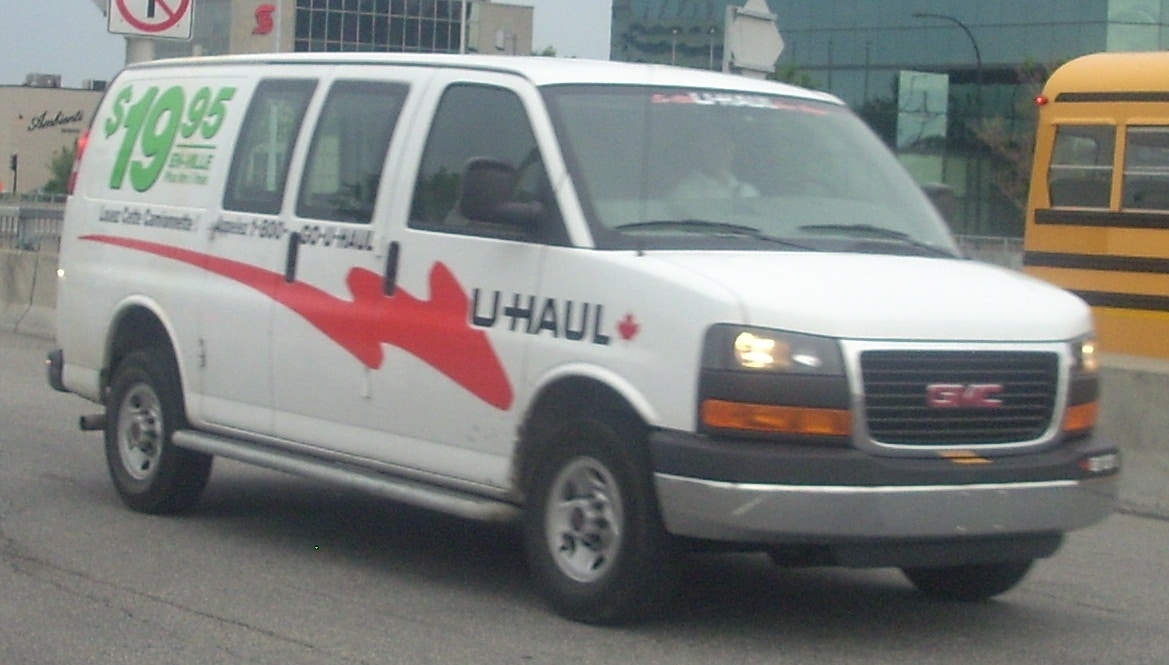U-Haul? More like U-Hate. The ubiquitous moving-and-storage company has made clear that it hates workers who use nicotine—even on their own time.
At the turn of the year, U-Haul announced that starting in February, they will “decline job applicants who are nicotine users” in the 21 states* where it’s legal to do so. And it doesn’t matter if the nicotine comes from a cigarette, a patch, gum or a vape.
U-Haul has 30,000 employees in the United States and Canada. The policy doesn’t apply to current employees, who may still smoke or use nicotine in other forms—but of course that could change at any time.
That it is even legal to not hire people who smoke is the first outrage. The second outrage is that job-seekers will be questioned about nicotine use and, in states where testing is allowed, applicants must consent to screening for nicotine. Once employed, drug testing for nicotine can be conducted randomly.
U-Haul’s new policy is a stark example of the insidiousness and overreach of the War on Drugs and its negative impact on marginalized people’s ability to obtain and maintain employment. Audrey Silk, the founder of Citizens Lobbying Against Smoker Harassment (CLASH) stated, “U-Haul taking advantage of some states’ lapse in judgment by not protecting citizens from hiring and firing practices based on legal lifestyle choices—whether it’s smoking or vaping now or diet later—is no excuse for their discriminatory policy.”
U-Haul’s announcement has to be viewed against the backdrop of the ongoing vaping panic and the illogical crusade to ban vastly safer nicotine products like e-cigarettes while combustible tobacco products remain widely available.
Now that U-Haul has blazed the trail, we can expect more companies to stop hiring anyone who uses nicotine. The staggering misinformation about the drug pumped out by anti-smoking organizations, government agencies and media have the public believing that nicotine, not smoke, is the problem.
In a company statement, Jessica Lopez, U-Haul chief of staff said, “Nicotine products are addictive and pose a variety of serious health risks. This policy is a responsible step in fostering a culture of wellness at U-Haul, with the goal of helping our Team Members on their health journey.”
U-Haul did not respond to Filter’s request for comment.
Everything in Lopez’s statement is wrong. Nicotine doesn’t pose serious health risks; it’s the smoke and chemicals released by burning tobacco that cause harm. And you can’t create a culture of wellness in a workplace that is based on urinalysis that punishes employees with termination if they test positive.
The other major problem is that it discriminates against vulnerable populations and people of color who already experience high unemployment rates.
“It’s one argument when an employer dictates what a person can do on company time,” Silk noted, “but quite another when they dictate what that person can do on their own time and calling it ‘employee wellness.’ Except that’s none of their business.”
The other major problem with businesses refusing to employ nicotine users is that it disproportionately discriminates against vulnerable populations and people of color who already experience high unemployment rates, hiring discrimination and job insecurity.
The highest rates of smoking are found among indigenous peoples, veterans, LGBTQ people, people who use drugs and people with psychiatric diagnoses. Refusing to employ workers who use nicotine results in a double whammy for many people who are unemployed. A study on smoking and unemployment found that not only are unemployed people more likely to be smokers, but tobacco use itself can make finding a job more difficult.
If U-Haul were really serious about helping Team Members on a “health journey,” they would embrace tobacco harm reduction and offer to pay for employees who smoke to switch to reduced-risk nicotine products like e-cigarettes, heat-not-burn devices or snus.
These nicotine delivery devices are safer than cigarettes by orders of magnitude. And nicotine, much like caffeine, is actually performance-enhancing—it boosts energy and increases focus and concentration—benefits that any rational employer would welcome in the workplace.
*Alabama, Alaska, Arizona, Arkansas, Delaware, Florida, Georgia, Hawaii, Idaho, Iowa, Kansas, Maryland, Massachusetts, Michigan, Nebraska, Pennsylvania, Texas, Utah, Vermont, Virginia and Washington.
Photo of U-Haul van via Wikimedia Commons/Public Domain.





Show Comments